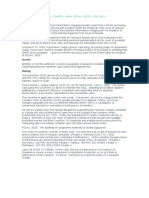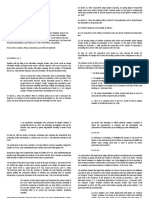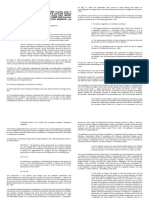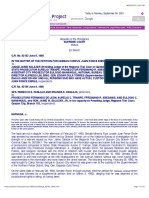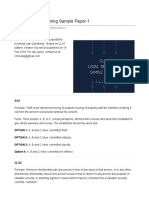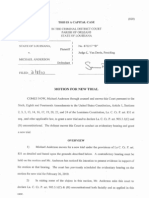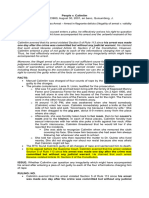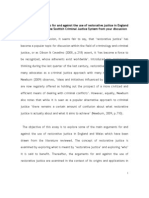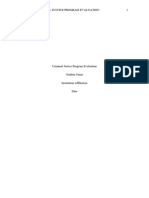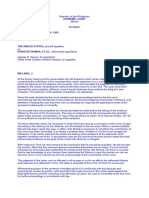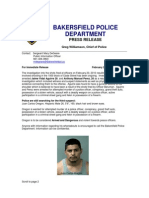04/02/2025, 16:37 Case Digest: G.R. No. 93335 - Enrile vs.
Amin
Title
Enrile vs. Amin
Case Decision Date
G.R. No. 93335 13 Sept 1990
Senator Enrile charged with rebellion and PD 1829 violation; Supreme Court
ruled harboring fugitive absorbed into rebellion, quashing separate charge
under Hernandez doctrine.
Jur.ph - Case Digest (G.R. No. 93335)
Direct Answer Model - Comprehensive
Facts:
The case involves Senator Juan Ponce Enrile as the petitioner against several
respondents, including Hon. Omar U. Amin and Hon. Ignacio M. Capulong, who are
judges of the Regional Trial Court of Makati, along with various state prosecutors and
the People of the Philippines. The events leading to this case began on December 1,
1989, when Enrile was charged with rebellion complexed with murder in the
Regional Trial Court of Quezon City. Concurrently, he faced another charge for
violating Presidential Decree No. 1829 in the Regional Trial Court of Makati. The
second information alleged that Enrile, having reasonable grounds to believe that Ex-
Col. Gregorio "Gringo" Honasan had committed a crime, unlawfully obstructed his
apprehension by harboring him in his residence. On March 2, 1990, Enrile filed an
Omnibus Motion to hold the issuance of a warrant of arrest in abeyance and to
dismiss the case. However, on March 16, 1990, Judge Capulong denied this motion,
asserting that there was probable cause for the charge. Enrile subsequently filed a
Motion for Reconsideration, arguing that the facts did not constitute an offense and
that the rebellion charge precluded the prosecution for harboring Honasan. On May
10, 1990, the court denied the motion for reconsideration, leading Enrile to seek relief
from the Supreme Court, claiming grave abuse of discretion by the lower court. The
pivotal issue was whether Enrile could be separately charged for violating PD No.
1829 despite the ongoing rebellion case against him.
Issue:
1. Can Senator Juan Ponce Enrile be separately charged for violation of Presidential
Decree No. 1829 while facing charges of rebellion complexed with murder?
2. Does the principle of absorption apply to the charges against Enrile, preventing
separate prosecution for harboring a fugitive in the context of rebellion?
Ruling:
https://jur.ph/jurisprudence/digest/enrile-v-amin?q=93335#_ 1/2
�04/02/2025, 16:37 Case Digest: G.R. No. 93335 - Enrile vs. Amin
The Supreme Court granted the petition of Senator Juan Ponce Enrile, quashing the
Information in Criminal Case No. 90-777 for violation of PD No. 1829. The Court ruled
that the act of harboring or concealing Col. Honasan was absorbed in the charge of
rebellion, thus preventing separate prosecution under the special law.
Ratio:
The Court's decision was grounded in the long-standing doctrine established in the
case of People v. Hernandez, which prohibits the splitting of component offenses of
rebellion and subjecting them to separate prosecutions. The Court emphasized that if
a person cannot be charged with the complex crime of rebellion for a greater penalty,
they also cannot be charged separately for offenses that are constituent elements of
rebellion. The Court noted that the alleged act of harboring Honasan was intrinsically
linked to the rebellion charge, as it was committed in furtherance of the rebellion.
The prosecution's argument that the violation of PD No. 1829 constituted a separate
offense under a special law was rejected, as the Court maintained that all acts
committed in furtherance of rebellion, regardless of whether they fall under special
or general laws, are absorbed by the crime of rebellion. The Court concluded that the
intent or motive behind Enrile's actions was crucial; if the act of harboring was
politically motivated, it should be considered part of the rebellion charge rather than
a separate offense. Thus, the Court ruled that Enrile could not be tried separately
under PD No. 1829 while facing rebellion charges, affirming the principle of
absorption in political crimes.
https://jur.ph/jurisprudence/digest/enrile-v-amin?q=93335#_ 2/2















